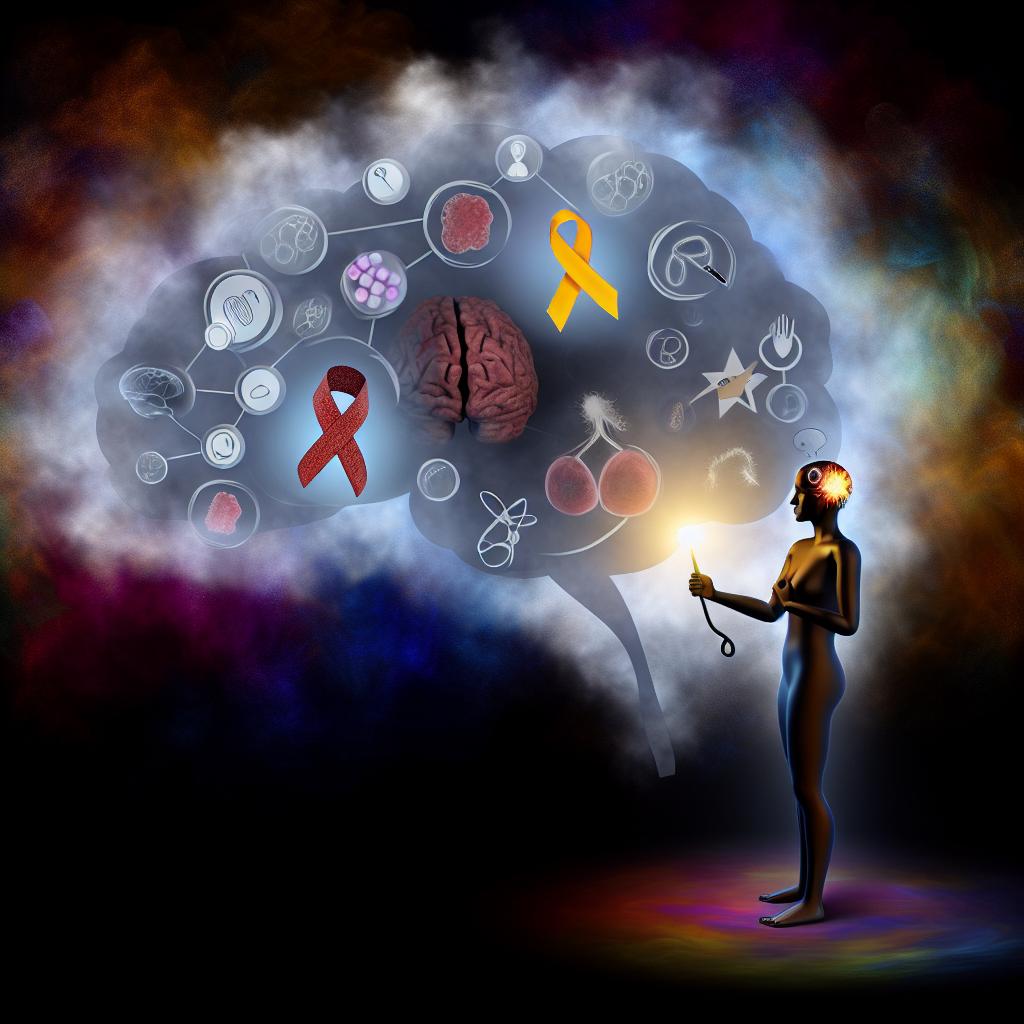Introduction
Post-traumatic stress disorder (PTSD) is often associated with military veterans or individuals who have experienced severe trauma, such as accidents or natural disasters. However, PTSD can also occur in cancer patients and survivors. Understanding PTSD in this context is crucial for providing comprehensive care to those affected by cancer.
The Nature of PTSD in Cancer Patients
PTSD in cancer patients can be triggered by their diagnosis, the ensuing treatment process, or lingering fears of recurrence. This type of PTSD mirrors the symptoms seen in other trauma survivors, including flashbacks, avoidance, hypervigilance, and intrusive thoughts.
A study published in the National Cancer Institute explores the prevalence of PTSD in cancer survivors, estimating that approximately 10% of survivors experience symptoms similar to PTSD. This statistic underscores the importance of recognizing and addressing PTSD as a legitimate health concern within the cancer care framework.
Causes and Risk Factors
PTSD in cancer patients can result from multiple stressors, which makes understanding these triggers crucial for prevention and effective treatment. One of the primary causes is the diagnosis shock, where the initial cancer diagnosis is perceived as a life-threatening event, provoking intense emotional upheaval. The psychological impact of learning about a potentially terminal illness can be as debilitating as the physical challenges posed by the illness itself.
Additionally, the intensive treatment that follows, including chemotherapy, surgery, or radiation, can be grueling. These treatments often have severe side effects, which are not only physically draining but mentally exhausting, contributing significantly to the development of PTSD symptoms. Finally, the fear of recurrence is an ongoing concern that haunts many survivors long after successful treatment, perpetuating continuous anxiety and stress.
There are certain risk factors that may predispose individuals to PTSD in the context of cancer. These include prior trauma experiences, which can exacerbate the emotional toll of a cancer diagnosis, and inadequate social support, isolating patients when they most need reassurance and connection. Preexisting mental health conditions may also increase vulnerability to PTSD, further complicating mental health management during cancer treatment. Lastly, the severity and intensity of cancer treatment itself remain significant risk factors, with more aggressive treatment often leading to heightened PTSD symptoms.
Symptoms to Watch For
Recognizing PTSD symptoms in cancer patients is essential for timely intervention, as early detection can lead to more effective management and improved outcomes. Key symptoms can manifest in various forms. For instance, patients may frequently re-experience distressing cancer-related events through flashbacks or nightmares, which can vividly replay the trauma in their minds and disturb daily functioning.
Another critical symptom is the avoidance of thoughts, feelings, or reminders of the cancer experience. This might include avoiding medical appointments, conversations about illness, or even places associated with their treatment. Such avoidance can significantly impair the patient’s ability to engage in necessary healthcare activities and social interactions.
Furthermore, increased arousal symptoms like irritability and hypervigilance are common. Patients might find themselves overly alert, constantly on edge, or experiencing difficulty sleeping. Such heightened arousal can exacerbate stress and fatigue, both physically and mentally exhausting the patient.
Management and Support Strategies
Effective management of PTSD symptoms in cancer patients involves a multidisciplinary approach. By integrating various treatment modalities, healthcare providers can address the multifaceted needs of cancer survivors.
One key component of this approach is psychotherapy. Evidence-based therapies such as Cognitive Behavioral Therapy (CBT) and Eye Movement Desensitization and Reprocessing (EMDR) have proven effective in reducing PTSD symptoms. These therapies help patients process their trauma, reframe distressing thoughts, and develop healthier coping mechanisms.
In addition to psychotherapy, medication can play an essential role in the management of severe PTSD symptoms. Antidepressants or anti-anxiety medications may be prescribed to help regulate mood and reduce extreme anxiety, providing critical relief for patients grappling with intense emotional distress.
Support groups also offer significant therapeutic benefits. Joining such networks allows cancer survivors to connect with others who have shared similar experiences, providing an outlet for emotional expression and a sense of community. Support groups can also alleviate feelings of isolation, as patients realize they are not alone in their journey toward recovery.
To further enhance patient care, cancer care teams should prioritize PTSD assessments. By incorporating routine psychological assessments during and after treatment, healthcare providers can better identify those in need of mental health support. This proactive strategy can help mitigate long-term impacts of PTSD on survivors, promoting better overall health outcomes.
Understanding and addressing PTSD in cancer patients and survivors is crucial for improving their Overall Quality of Life (QoL) and ensuring a comprehensive survivorship care plan. By integrating mental health care into cancer treatment, healthcare providers can better support the emotional and psychological well-being of patients throughout their cancer journey. This integration ensures that mental health is given the same priority as physical health, acknowledging that both are integral to true holistic healing.
Through continued research, awareness, and compassionate care, the medical community can continue to evolve its approach to PTSD in cancer patients, ultimately fostering environments where survivors not only endure but thrive, empowered with the tools and support they need to navigate life after cancer.
This article was last updated on: June 24, 2025

